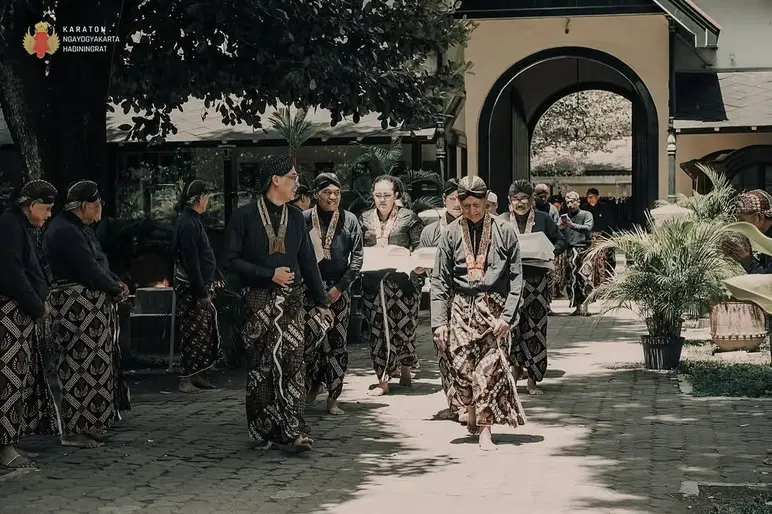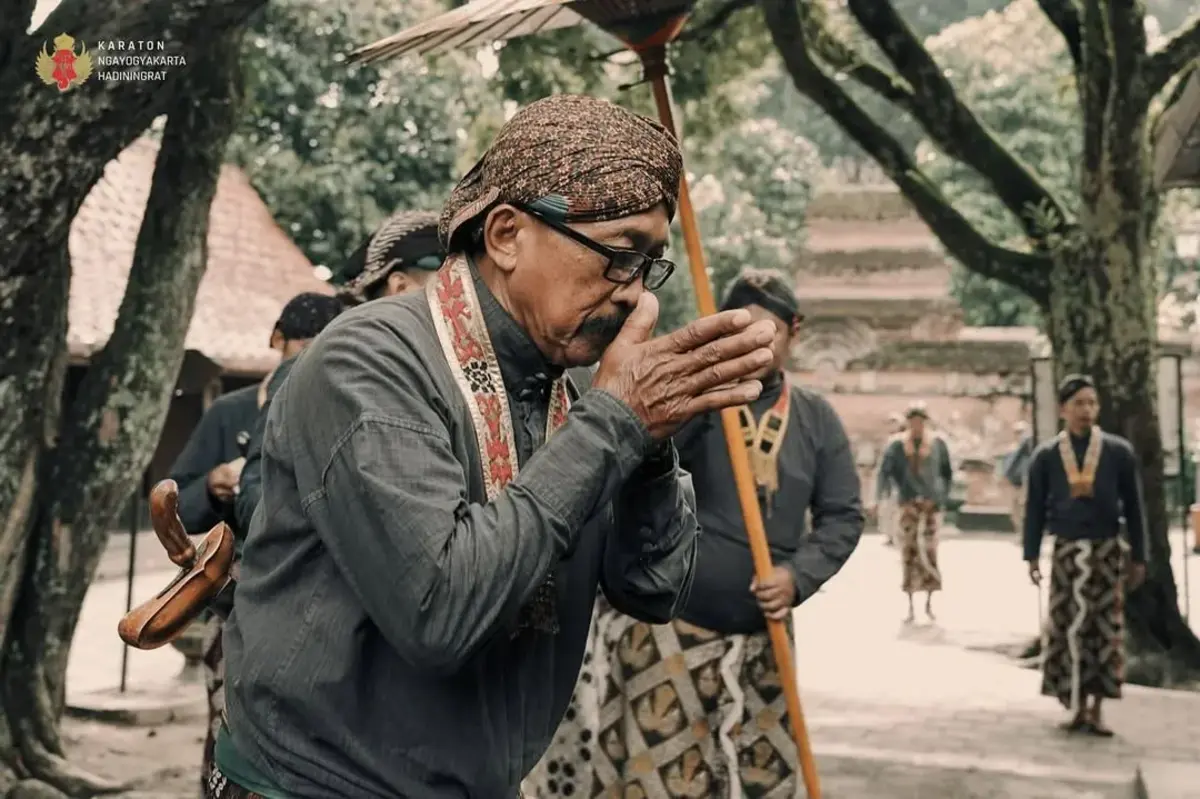Abdi Dalem are inseparable from Yogyakarta. Abdi Dalem are people who dedicate themselves to the palace and the king, adhering to its rules.
The Abdi Dalem of the Yogyakarta Palace are divided into two groups: the Abdi Dalem Kaprajan and the Abdi Dalem Punakawan, with neither group observing holidays. The Abdi Dalem Kaprajan are of a higher caste than the Abdi Dalem Punakawan. Still, their numbers are not as numerous as the Abdi Dalem Punakawan can number in the hundreds.

Both the Abdi Dalem Kaprajan and the Abdi Dalem Punakawan have duties to serve the palace. The difference between the two is the salary they receive from the palace.
The Abdi Dalem Kaprajan are unsalaried, as they already receive a pension, while the Abdi Dalem Punakawan still receive a salary. The Abdi Dalem Kaprajan can be active civil servants, whose titles are adjusted according to their class or rank.

Those wishing to become Abdi Dalem Kaprajan must volunteer at the palace, where they will be selected for the role. If they meet all the requirements, they will receive a kekancing (a decree) issued during a ceremony.
The Origins of Abdi Dalem
After its proclamation on March 13, 1755, the Yogyakarta Palace required state personnel from both the civilian and military ranks. Abdi Dalem are civil servants, while the military personnel are called Tentara Keraton (Palace Soldiers).

Abdi Dalem is tasked with carrying out operational duties in every organization established by the Sultan. Without Abdi Dalem, the wheels of government would not run smoothly.
Duties of Abdi Dalem
In addition to carrying out operational duties in every palace organization, Abdi Dalem are also cultural servants. Cultural servants are individuals who can and are capable of providing role models for the wider community.
An Abdi Dalem must be a role model in society through their behavior and etiquette. The distinctive characteristic of the Abdi Dalem of the Yogyakarta Palace lies in their attire.

The traditional attire of the Abdi Dalem is called peranakan. Peranakan comes from the word 'diper-anak-kan,' meaning that being an Abdi Dalem is considered as if one were a sibling born from the same mother.
When carrying out their duties, all Abdi Dalem dress the same and go barefoot. Furthermore, female Abdi Dalem are not permitted to wear jewelry, to eliminate the distinction between the poor and the rich, ensuring that all Abdi Dalem have equal status.
Life in the Palace
Within the palace, Abdi Dalem are addressed as 'kanca,' meaning friend or relative. Communication among Abdi Dalem is conducted in the Bagongan language.
The Bagongan language differs from common Javanese. In Bagongan, communication between Abdi Dalem recognizes no distinction of rank or status.
Division of Abdi Dalem Duties
Panakawan Abdi Dalem are divided into two groups: Abdi Dalem Punakawan Tepas and Abdi Dalem Punakawan Caos. The Abdi Dalem Punakawan Tepas have working hours like those of office workers, while the Abdi Dalem Punakawan Caos only visit the palace once every ten days, demonstrating their respect and loyalty as servants.
The Abdi Dalem, whose work scope is closest to the Sultan, are called Keparak, and are predominantly female. The Keparak Abdi Dalem are one of the groups closest to the Sultan, as their duties include guarding the heirloom chamber, preparing ceremonial equipment, and catering to the needs of the Sultan, the Queen, and the Sultan's children who reside within the palace.

The Process of Becoming an Abdi Dalem
Before being inaugurated, prospective Abdi Dalem undergoes a two-year apprenticeship. During these two years, the apprentices are assessed based on their regularity in visiting the palace, their commitment to service, their talents, and their educational background.
The foundation of becoming an Abdi Dalem is personal commitment. Abdi Dalem, who is no longer able to perform their duties due to advanced age or health, will undergo a dismissal process called Miji, which rarely occurs due to boredom or resignation.
Abdi Dalem Promotion

Several assessment aspects can influence Abdi Dalem's promotion. In addition to regular promotions every three or four years, an Abdi Dalem with a specific educational background and expertise can receive annual promotions, upon the orders of the Sultan.
Abdi Dalem Today

With the changing times, many Abdi Dalem come from professional backgrounds with higher education. Their educational backgrounds vary, ranging from arts, computer science, and accounting.
This demonstrates that Abdi Dalem is not always synonymous with the elderly and less educated. Abdi Dalem is an individual with cultural insight, expertise, and dedication.




 Annissa Wulan
Annissa Wulan
 Sep 29, 2025
Sep 29, 2025